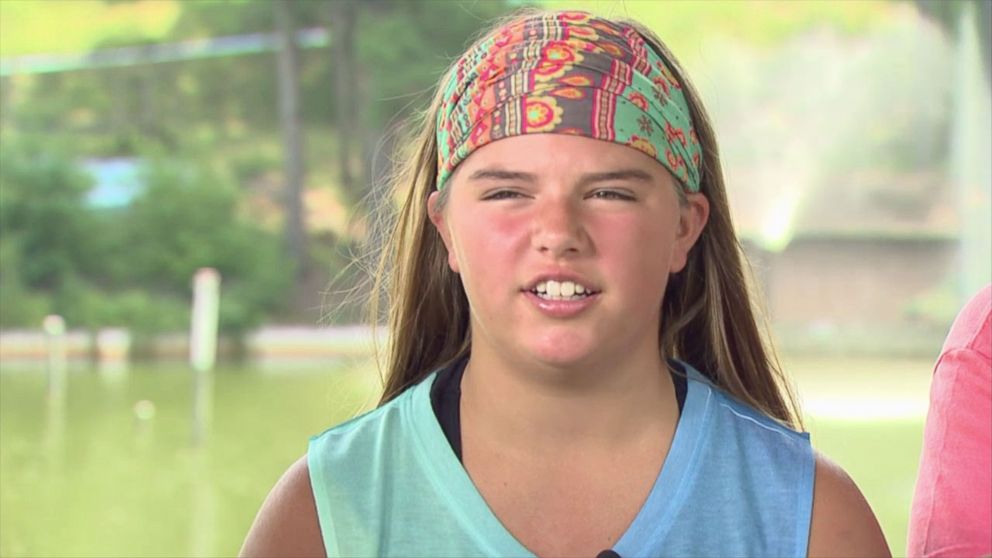Girl Who Survived Brain-Eating Amoeba Swims Again
— -- A 13-year-old Arkansas girl, who is one of only three people in the United States known to have survived a brain-eating amoeba, is back enjoying swimming after contracting the infection at a water park last year.
“I have a swimming pool in my backyard. I go swimming in that as much as I can,” Kali Hardig told ABC News’ “20/20.” “In fact I was in it yesterday for I don't know how long.”
12-Year-Old Brain-Eating Amoeba Survivor, Kali Hardig, Heads Home
Brain-Eating Amoeba Victim Shows Signs of Recovery
Girl, 12, in Critical Condition With Brain-Eating Amoeba
Hardig was swimming at Willow Springs Water Park in Little Rock, Arkansas, last summer, when she became sick with a fever, nausea and severe headaches.
“I started with a real bad headache, and all of the sudden the headache just started getting worse, so I told momma,” Hardig said.
“And I knew when her eyes rolled back in her head, I knew something bad was wrong,” Traci Hardig, Kali’s mother, told “20/20.”
Traci Hardig and her husband raced their daughter to Arkansas Children’s Hospital in Little Rock, where she was diagnosed with having contracted primary amoebic meningoencephalitis – a rare form of meningitis caused by the amoeba Naegleria fowleri.
“Naegleria is an infection that you can’t get by just swallowing some water. The water actually has to get splashed up your nose,” said Dr. Matthew Linam, who treated Kali at the time. “The amoeba, when it’s out in the environment, uses bacteria as a food source. Once it gets in the brain, it doesn’t have those bacteria for food so it starts attacking nerve cells as food.”
Kali Hardig was in critical condition for weeks but eventually recovered and went home last September. According to the Centers for Disease Control and Prevention, there have been only 133 known infections like Kali Hardig’s in the United States in the past 50 years.
After her ordeal, Hardig said she was scared to come in contact with water, even to take showers, at first.
“I was afraid to take a shower because I know that I got it from water, and I was thinking that it could be from all kinds of water, that it could be in the shower,” she said.
After undergoing treatment and intensive cognitive and physical therapy, Hardig now is looking forward to playing for the volleyball team when school starts.
When asked about whether she wishes to forget the ordeal, Hardig said, “Actually I hope I never forget it because it's something that I've got to experience but never want to experience again."




